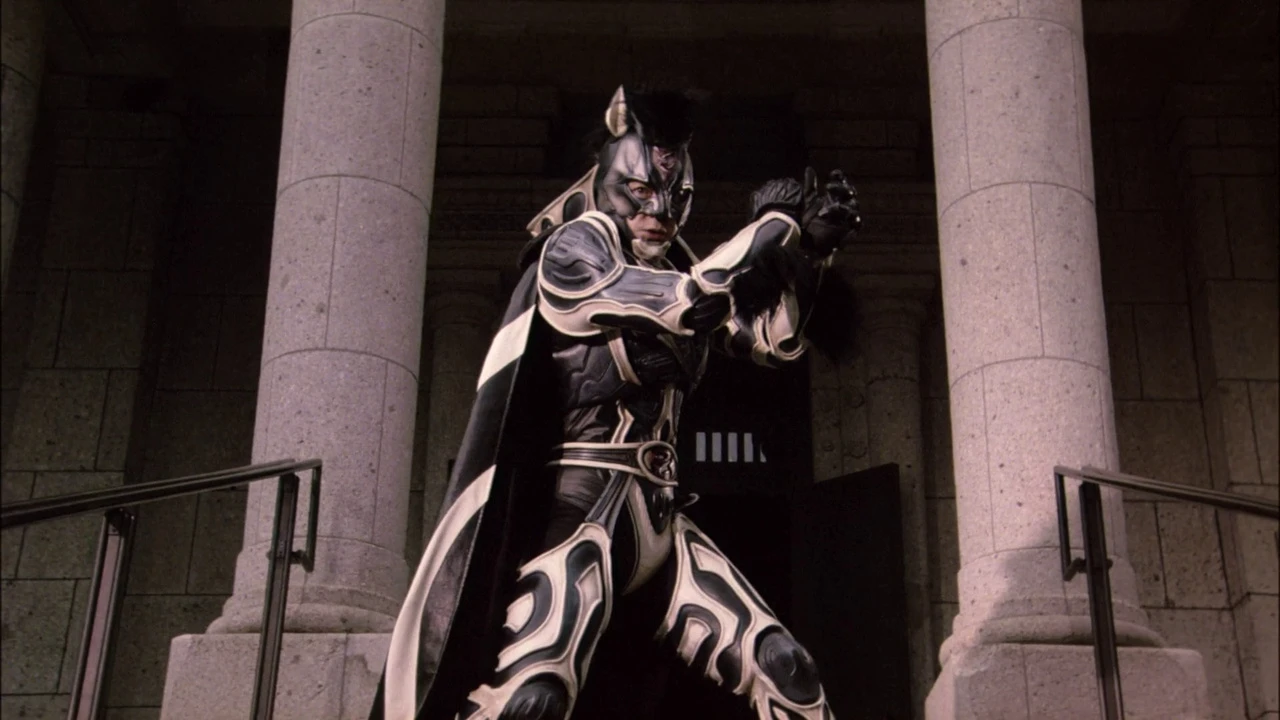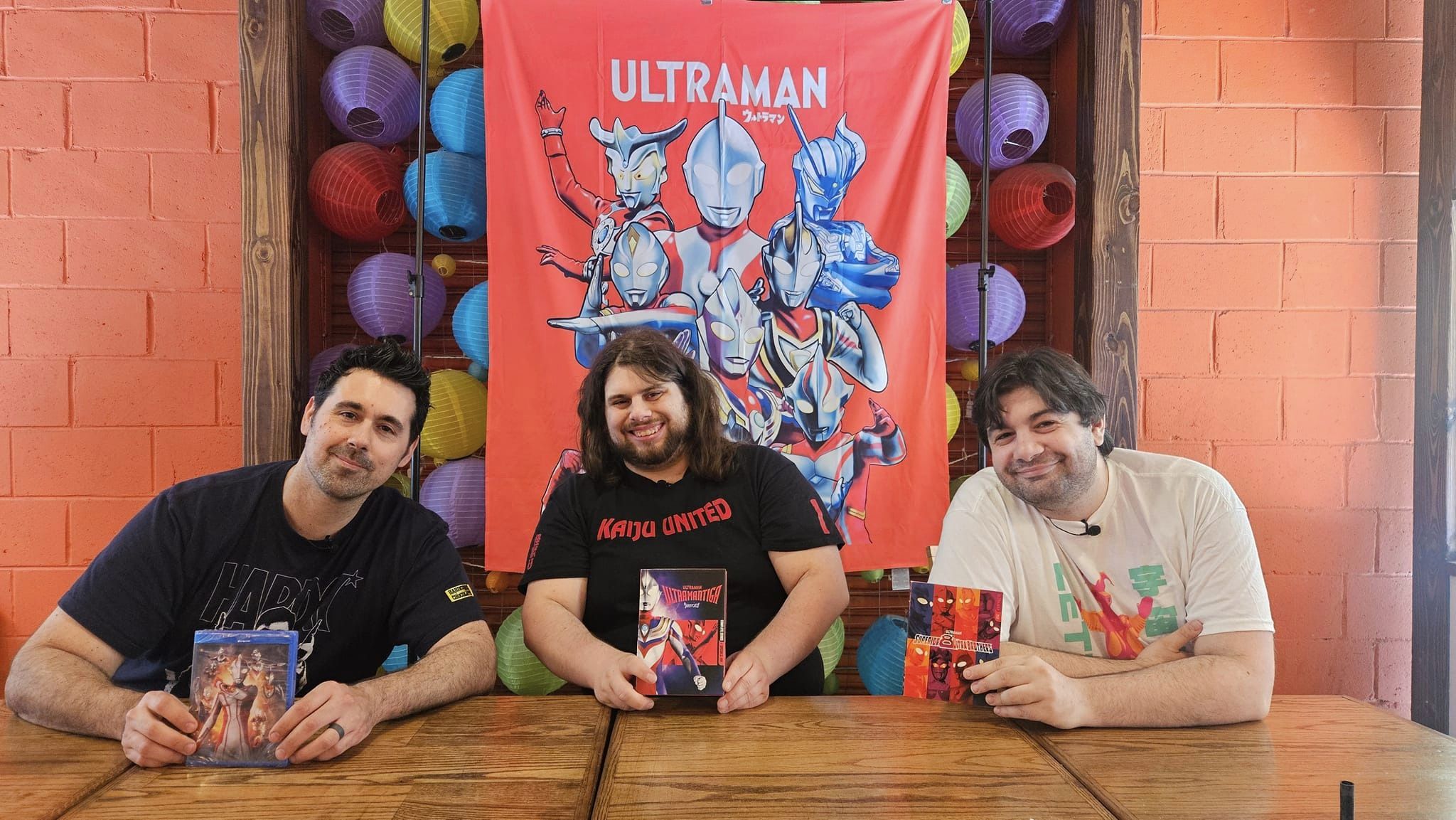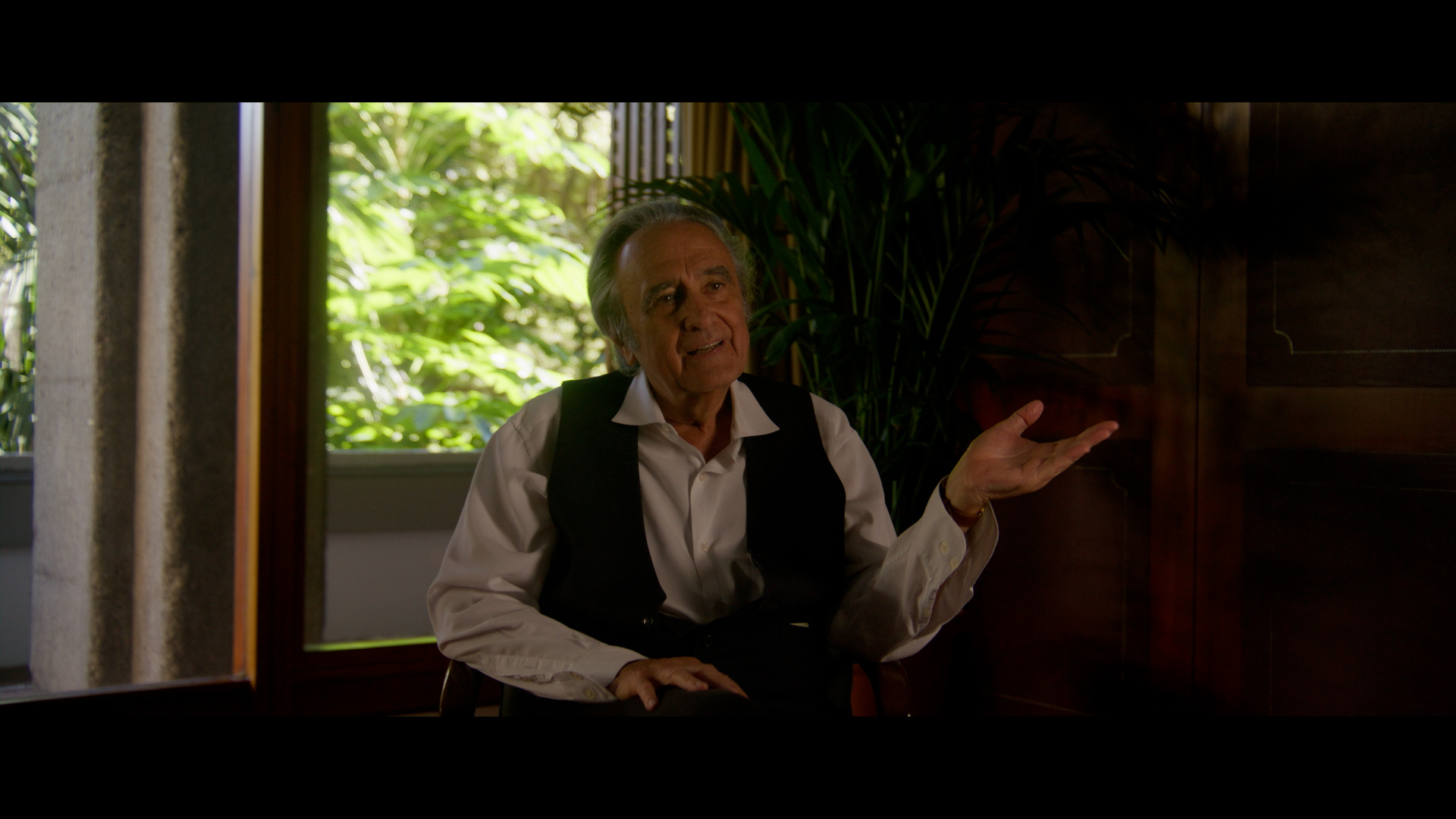Zebraman is a 2004 low-budget action comedy directed by Japanese icon and cinematic provocateur, Takashi Miike. On the offset, this quaint movie seems an odd choice for a filmmaker such as Miike, a director known for his boundary pushing violence and sexual paraphilias, as well as his flagrant disregard for genre conventions, oftentimes stumbling into a particular genre rather than deliberately setting out to create a work within the confines of any individual niche, resulting in his signature mashups of myriad genres. Zebraman itself is a film any eagle-eyed longtime viewer of Japanese media will recognise as being almost entirely indebted to 1970s Tokusatsu, in particular the original Kamen Rider. Featuring deliberately evocative imagery and effects that recall the golden age of Tokusatsu superhero television, Zebraman is more than a simple visual homage, however, as a deeper dive into the film beyond its surface will reveal a layered love-letter to Tokusatsu television series, and a celebration of its simple heroism and often naive sentiments on human goodness.
But first, what exactly is Zebraman? Starring Miike regular and B-movie legend, Show Aikawa (Dead or Alive Trilogy, Helter Skelter, Gozu) as Shinichi Ichikawa, a father and teacher who is scorned by his students, treated as a second thought by his wife, and disregarded outright by his young kids. Shinichi gets only a momentary reprieve from his life of misery and disregard through his loving recreation of the fictional Tokusatsu superhero series, Zebraman. In his apartment late at night, Shinichi has made himself a series-accurate costume and replays his favourite episodes on repeat, acting out the various heroics of this fictional icon. Things begin to change, however, when Shinichi strikes up a friendship with the mother of a young boy from his school who is a fan of the Zebraman series, played by Kyoka Suzuki and Naoki Yasuguchi, respectively. Through this unlikely friendship, Shinichi is imbued with the power to fight evil as the real Zebraman once it is revealed that the eponymous series, cancelled only a handful of episodes, and forgotten to all but a scarce fanbase, was actually a prophecy that has now come to pass. As a mounting alien invasion unfolds, Shinichi overcomes his inadequacies and achieves his destiny as the titular animal-themed hero.
Zebraman may seem an odd directorial decision for the prolific Miike. Coming out only a few years after he struck the mainstream with his femdom/torture-drama, Audition (1999), and shattered all sense of decency with his follow-up movies Ichi the Killer and Visitor Q (both 2001), it’s safe to say that he had become a director known for his perverse use of sexuality (see the necrophiliac ‘Q and the sadomasochistic ‘Ichi), and his frequent employment of violence, both extreme, and realistic. This rather small-scale Tokusatsu homage arrived at a time when just about every critic and average moviegoer was expecting the filmmaker to go bigger and more brutal, not smaller and homelier. But, as his eventual TV efforts in 2005’s Ultraman Max would prove, Miike is a director with a surprising passion for the art of Tokusatsu. It’s fair to say that although Zebraman is on the lighter side of his career, he still possesses some of the bizarre idiosyncrasies that have made him such a household name.
Zebraman features myriad Kaijin and alien foes for its titular protagonist to battle against. From the STD-filled Crab-Man who cuts up women’s skirts with a pair of scissors – paralleling a monstrous crustacean from the series, to the myriad CGI goopy green aliens leading the invasion, Zebraman must combat these foes to save the world, all whilst being mocked by his fellow teachers, his family, and his pupils.
One can easily find this adoration for Tokusatsu on display throughout Zebraman’s runtime. Shinichi’s own obsession with the series echoes the real-life attitudes one may have towards the genre. The cosplaying teacher is at first ashamed of his fanboyism, apprehensive to leave the house whilst in his superhero getup, and hiding it from his own family, confining his love of the series to his off time spent alone. This is a sentiment shared by many an adult Tokusatsu enjoyer, or rather any adult person whose appreciation for kids’ entertainment has remained intact after adolescence. Throughout the film, there is a stylistic difference between the mundanities of everyday life (presented with an uncharacteristic dullness from Miike) and the rip-roaring fantasy of Zebraman (a more lavishly insane styling from Miike). The scenes featuring either the school where Shinichi works or his home life are spent in dark rooms and static, intrusive camera angles. This is juxtaposed against the recreation of the old television series, which is shot with a far more frantic, kinetic energy. As the film progresses, and the friendship between Shinichi and his pseudo-surrogate son evolves, Shinichi continues to embrace the sincerity and wholeheartedness of his inner child. It is ultimately this reacquaintance with his own inner child, and his acceptance of the aspects of his personality that others would deem “childish” and unbefitting of so mature a figure as a teacher ought to possess that allows him to become the hero he was destined to be.
This is likely something instantly recognisable to anyone whose adoration for the Tokusatsu or superhero media has outlasted their youth. This parallel between the self-acceptance of the film’s leading man and the acceptance of one’s own idiosyncratic fandoms in the real world is one that ultimately allows the true message of the film to flourish. Zebraman is a movie about learning to love not just your inner-child, but your inner-nerd, and your inner-weirdo. So too does Shinichi’s acceptance of the strength he can find within his fandom allow him to connect more to those around him.
The blossoming friendship between him and his newfound mother/son allies literally saves his life at a time when the prophecy deems it perforce for the mother to become a sidekick to Zebraman, in Zebra-Nurse, healing him in his time of need, both physically and emotionally. Once again, it is this connection that provides for the film’s climactic battle, wherein Shinichi must prove himself in one final battle against the forces of extraterrestrial evil. When it is revealed that the principal of his school is the one behind the invasion (don’t ask, this film has a lot going on, just go with it), Shinichi combats the force of ridicule in his life in a more literal way than ever before. This proclamation of childlike goodness and refutation of adult doomerism and nihilism, as embodied by the conflict of good and evil, young and old, sincerity and ridicule, is the ultimate statement of Zebraman. It’s a movie that asks you to embrace the weird and the wonderful, and the childish, and to refuse to succumb to the gloominess that grips the adult world.

It is through the reclamation of an appreciation for the world of Tokusatsu and the wonders of childhood therein that Miike ultimately achieves this message. It’s a cheesy “just be yourself” sentiment that is a fantastic matrimony of the movie’s odd tone and sincere arguments. Anyone who is a fan of Tokusatsu, specifically that of old golden-age television series such as Kamen Rider and Return of Ultraman, should carve out some time to visit this often-overlooked work of idiosyncratic brilliance. Miike isn’t a director well-known for his Tokusatsu ventures, but they make up a surprisingly touching aspect of his vast and ever-evolving filmography. It may not feature the extreme violence and paraphilias of Miike’s more idiosyncratic works, nor the episodic nature of the materials it homages, but Zebraman is a wonderfully niche combination of a childlike vision of heroism and a violent, fetishistic adult world.
Zebraman would receive a sequel in 2010, and Miike himself has continued to build a filmography reaching into the hundreds, and so it’s easy to see why this hidden gem has fallen by the wayside somewhat. But that doesn’t make it deserving of its forgetting. This is an underrated labour of love from one of Japan’s most prominent filmmakers, so give it a watch.






